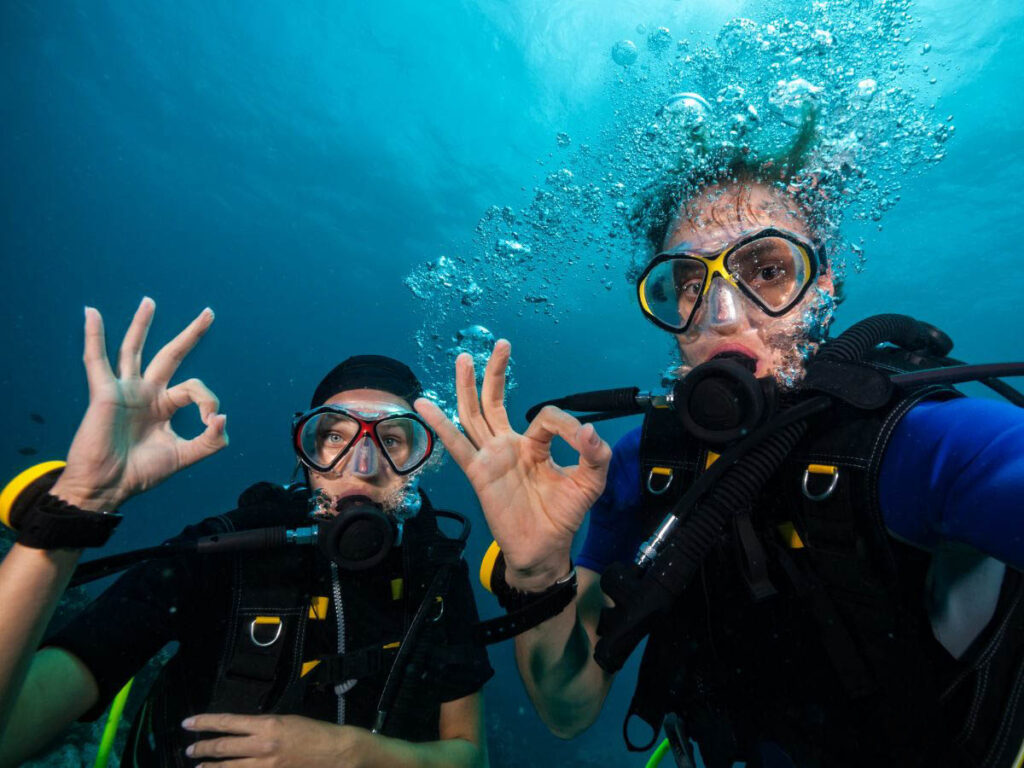Marine ecosystems contain fascinating flora and fauna, but adventuring underwater can be dangerous. Discover some essential tips for staying safe while diving.
Scuba diving is an exciting activity that allows divers to explore the beauty beneath the water’s surface. However, scuba diving also comes with potential risks. For this reason, most scuba divers receive extensive training to prepare for diving and to maintain safety standards. Whether they’re seasoned divers or just beginning, this is how scuba divers stay safe while underwater.
Training and Certification
Proper training and certification are essential for safe diving. Scuba divers must be trained on fundamental diving skills, including correct breathing techniques, proper equipment use, and safety protocols. By learning the essential safety protocols, divers can avoid spontaneous actions that could put them in harm’s way. Fortunately, organizations like the Professional Association of Diving Instructors (PADI) offer certification courses that are recognized worldwide. Scuba divers must also maintain their certifications by taking refresher courses to keep up with changing safety standards.
Checking Equipment
Before diving, scuba divers should always double-check their equipment to ensure everything is in good condition. This includes checking the air supply, pressure gauge, regulator, mask, fins, and buoyancy compensator device (BCD). Additionally, divers should ensure there are no leaks, damage, or other potential hazards related to their gear. If a problem is detected, divers should immediately address it or seek professional assistance.
Diving With a Buddy
Diving with a partner or a group is an excellent way for scuba divers to stay safe during underwater adventures. Having a buddy not only increases safety by providing a backup option in case of an emergency but also enhances the overall diving experience. Divers should plan their dives and communicate with their partners beforehand to verify safe navigation, diving signals, and other relevant information. Diving alone should be avoided whenever possible.
Understanding Safe Diving Limits
Scuba divers must pay attention to certain limits, such as depth, time, and decompression. These limits exist to ensure their well-being and prevent potential hazards such as nitrogen narcosis or decompression sickness. Divers should educate themselves on these limits to avoid exceeding them and putting themselves in danger. Furthermore, divers should listen to their bodies and carefully ascend to the surface if they feel any discomfort or signs of physical exhaustion.
Respecting the Ocean and Marine Environment
Scuba divers should always be mindful of their surrounding environment and avoid touching or harming marine life. This not only helps preserve the natural beauty of the ocean but also ensures the safety of the divers. Additionally, divers should follow proper protocols to avoid disturbing the ocean bed or damaging underwater structures with their boats. Furthermore, understanding how marine batteries make a boat more eco-friendly will help scuba divers prevent unnecessary contamination during a diving trip.
Having an Incredible Underwater Experience
Scuba diving remains one of the most exciting and rewarding activities for marine adventurers. However, safety should always be a top priority. By following the above measures, divers can minimize risks and enjoy the thrill of the underwater world safely. Remember that proper training, equipment readiness, having a buddy, understanding safe diving limits, and respecting the marine environment are essential for staying safe while taking in the scenery. Here’s to having an incredible underwater experience







